Harvey Weinstein Rape Retrial in Turmoil as Juror Deliberations Get Nasty: Defense Moves Again for a Mistrial
The judge refuses the latest motion for a mistrial.

The jury deliberating the verdict in the retrial of the movie producer Harvey Weinstein asked the presiding judge, Curtis Farber, about the rules of a hung jury on Monday. By the end of the third day of deliberations, the jury was still discussing the case and had not reached a verdict.
The jury’s question is the latest of multiple signs that the discussions in the jury room are heated. In the morning, the jury sent two notes: The first, from the foreman of the jury, who leads the deliberations and is ultimately responsible for conveying the verdict to the court, asked to speak to the judge “about a situation that isn’t very good.”
In the second note, the jury asked to hear again “the entire definition of reasonable doubt and rules of the jury, especially to avoid a hung jury.”
When a jury verdict is rendered as “hung,” a judge acknowledges that the jurors could not agree on a unanimous verdict and a mistrial is declared. Only if the prosecution decides to bring the charges again will a new trial will take place.
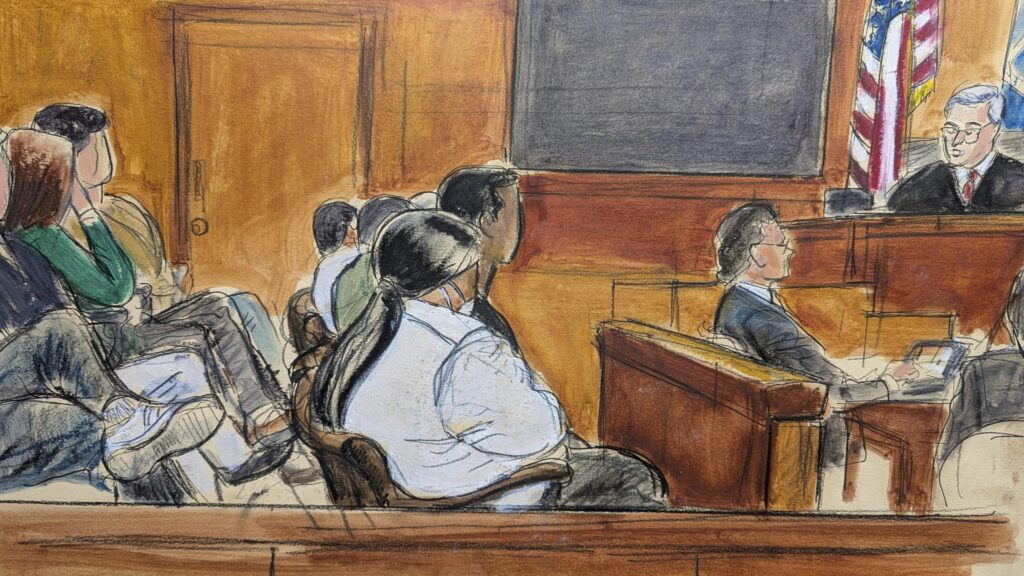
This is already the second trial of Mr. Weinstein, after another jury’s 2020 verdict was thrown out.
The foreman appeared briefly in the courtroom and when Judge Farber asked him if the matter was personal, he said it was not, it was about “something going on in the jury room.”
The judge took the juror and the attorneys into his robing room to discuss the matter. The defendant, Mr. Weinstein, waived his right to be present.
In the robing room, according to the court transcript received by the Sun, the foreman told the judge that he felt jurors were discussing past allegations rather than the present charges against the defendant.
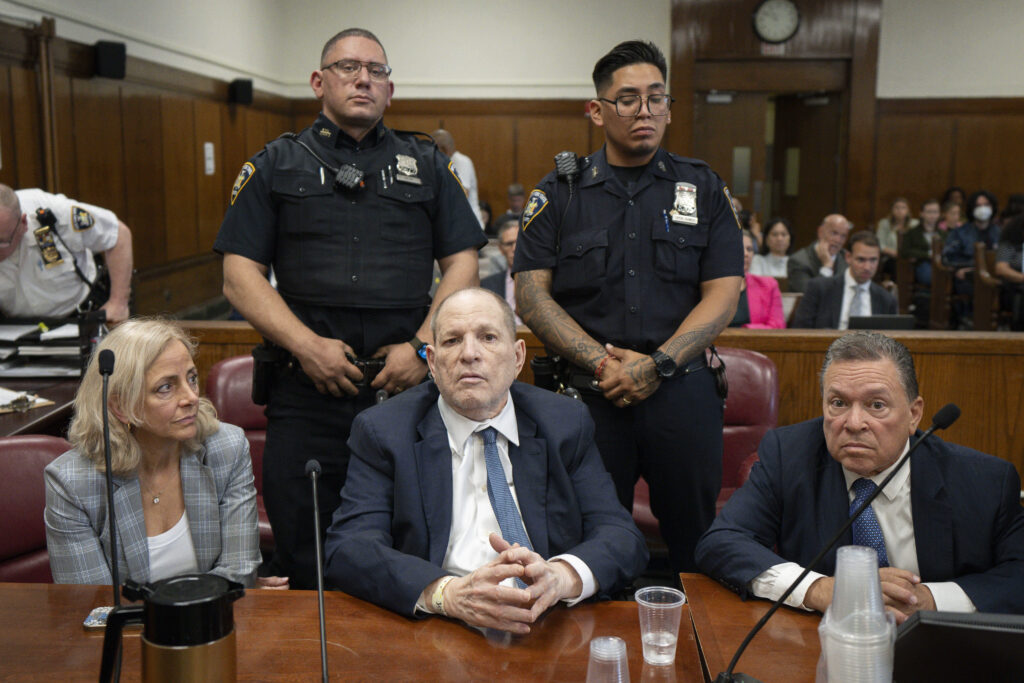
“I feel it is not fair,” the foreman, who is originally from the Dominican Republic, said, “taking the decision about the past. We have to [make] the decision about what’s happening at the time of the apartment or the room, not from the past, but the present,” the juror said.
The judge asked for clarification: “You are saying the discussions are going on, where they are talking about other things other than just the crime charged?”
The juror confirmed this. He said he was concerned that people were discussing allegations that stemmed from the past and that they were using these allegations to “push people [to] change their mind.”
“We are not here to push somebody to change mind, we are here for opinion and [to] give more corroboration with information,” the juror went on.
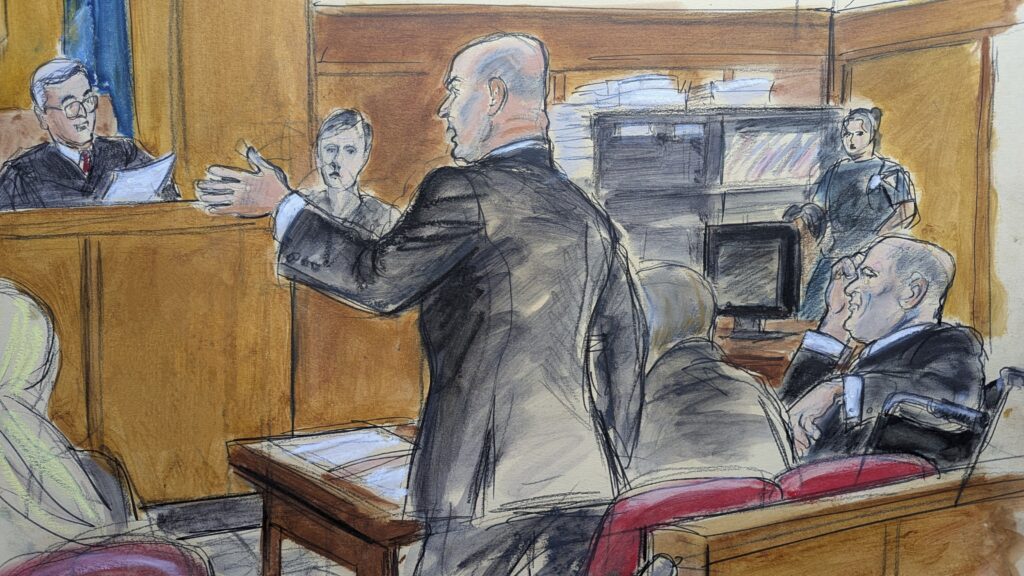
Back in open court, the lead defense attorney, Arthur Aidala, asked for another mistrial, as he had done on Friday, as the Sun reported, when another juror had complained about what he described as “playground” nastiness in the deliberation room, with jurors saying unflattering things about another juror behind her back.
On Monday, Mr. Aidala argued that the juror’s remarks had indicated that the jurors were considering evidence that was not presented during the trial, but past allegations against his client.
Mr. Weinstein, an Oscar awarded film producer who is 73 years old and wheelchair bound and suffering from cancer and other ailments, is on trial again, after his prior conviction was overturned by the highest court in New York State, the court of appeals, last year.
The higher court ruled that the trial judge had allowed women who were not part of charges in the case to testify in the trial and make allegations against the defendant. During the retrial, presided over by a different judge, all parties tried to be as careful as possible not to make the same mistake again.

“We worked so hard in this highly publicized case,” the defense attorney lamented, to select jurors “who would be able to put it [the previous allegations] out of their mind,” meaning to find jurors who would judge Mr. Weinstein solely on the evidence presented during this trial and on nothing else.
After another note came, from Juror Number Ten, again asking to speak to the judge, Mr. Aidala referred to the jury as a “runaway jury,” likely a reference to the John Grisham novel of that name — which was made into a hit movie starring Gene Hackman — about a shady consultant trying to manipulate a jury.
The prosecution opposed the mistrial request, arguing that the evidence that was allowed in this trial was not opposed by the defense, and that the judge should simply explain again that the jurors should only consider the evidence heard at trial and nothing else.
The judge denied the mistrial motion, and read the jury, as per its request, the explanation as to what reasonable doubt means and how to avoid a hung jury. He also clarified that the jurors could only consider the evidence, the testimonies by witnesses, the stipulations agreed on by both parties, and the documents submitted as evidence.
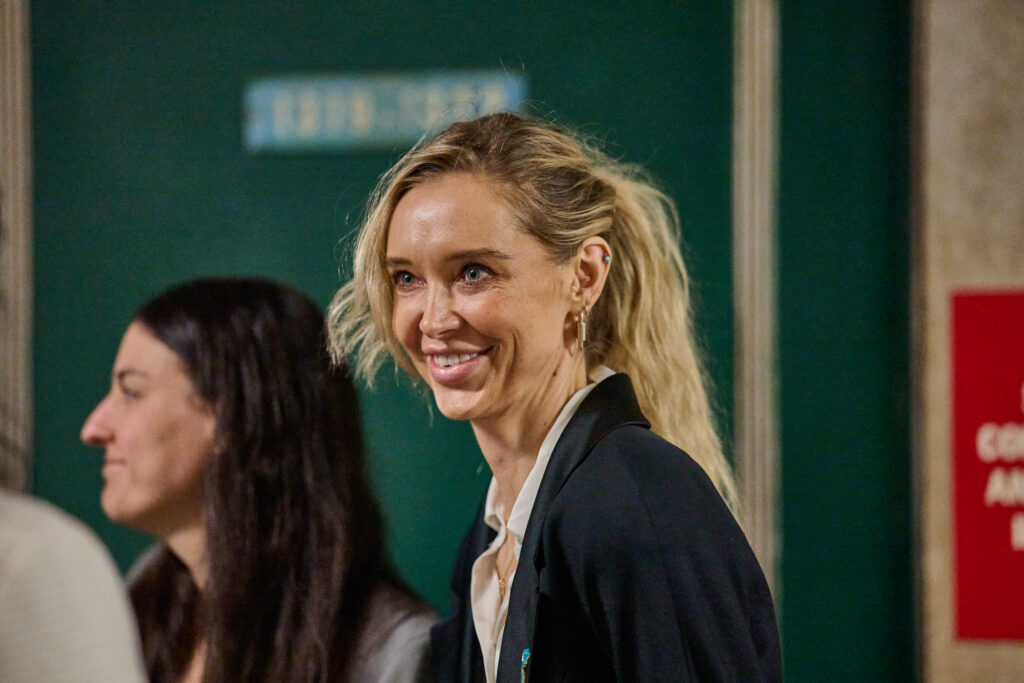
The “uncharged criminal conduct,” the judge explained, referring, for example, to an allegation made by one of the accusers, a former Polish model, Kaja Sokola, that was not part of the indictment, could only be considered as “background evidence” and not as direct evidence for the charges.
“You have the duty to consult with one another,” the judge said, “you have the duty to talk to each other, cordially. You cannot tune someone out, you have to listen to them.” The judge added a significant “but,” saying that “no juror should give up his own opinion.”
Then, Judge Farber called in Juror Number Ten, who had also sent a note that she wished to be heard. Surprisingly, the older woman simply told the court that “things are going well today.”
“I just want to give the temperature,” she said. “Sometimes we need to be reminded of the things you are instructing us [on]. … None of us have sat on a long trial. … Some people may wanna rush it along, and today we realized it’s a process.”
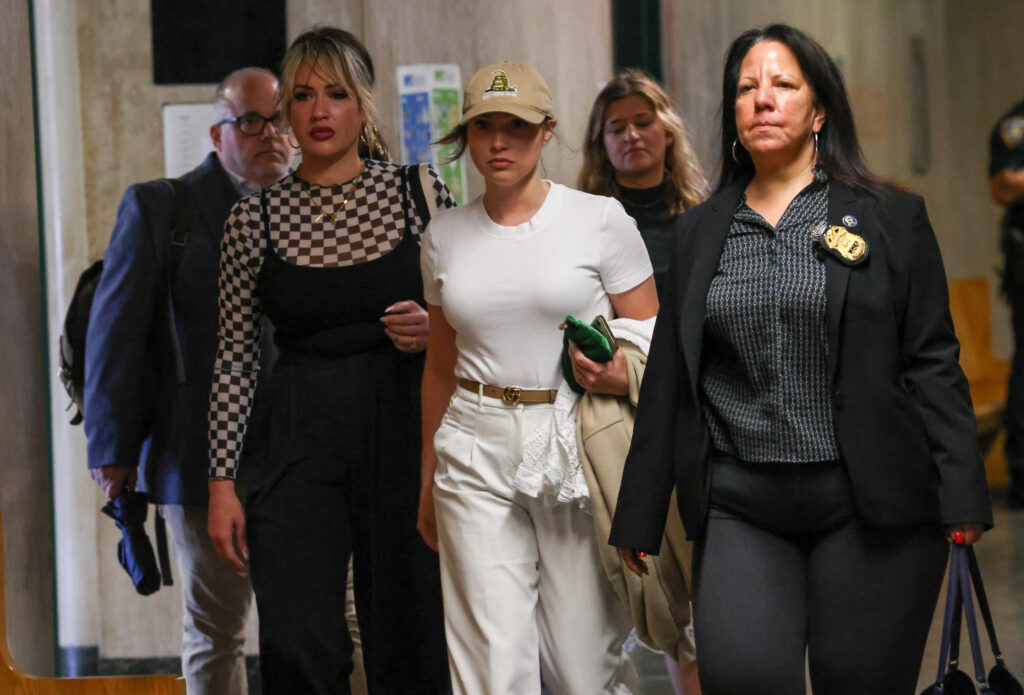
Shortly after, the jury sent another note requesting to hear the testimony of a clinical psychologist the prosecution had called, Lisa Rocchio. The jurors wanted to specifically hear the part when Ms. Rocchio discussed why “usually assaulted women continue any relation with the predator.”
At the end of the day, the jury sent three more notes, one requesting to leave for the day and saying they were “making good progress,” another requesting a laptop that would include the email exchange between one of the accusers, Jessica Mann, a former aspiring actress, and the defendant. The last note read, “we, the jury, request coffee for the next morning for energy.”
Judge Farber excused the jury shortly after 4:30 p.m., promising that the laptop with the requested evidence would be available for them on Tuesday morning, but he declined the coffee request.
“That’s a tough note for me,” the judge told the jury, “mainly because the state doesn’t provide anything but lunch. There is a Dunkin Donuts down the street.” He sighed. “I wish I can give you coffee but unfortunately there is no mechanism by the state to do it. I’ll leave that for the jury to figure that out for themselves.”
Deliberations will continue on Tuesday.

